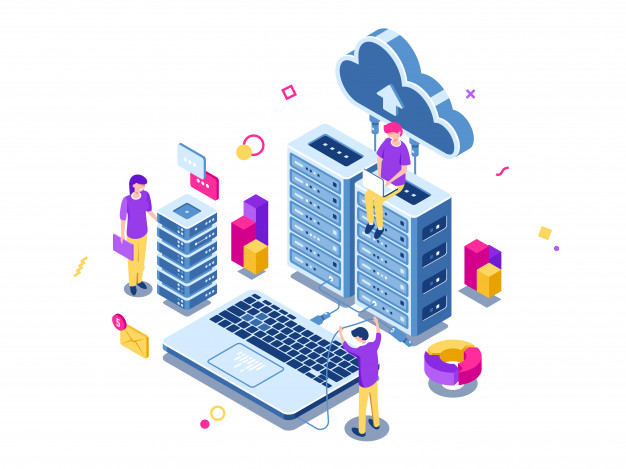How data openness can drive better outcomes for all

At a recent NZ Virtual Event, we heard from Aimee Whitcroft, Open Data Lead, Waka Kotahi New Zealand Transport Agency where she explored how open data and related data products can:
- Empower and engage citizens
- Improve service delivery, relevance, and decision-making
- Contribute to NZ Inc.
Empowered by Data
Our modern world is in many ways defined by data. It is data that largely underpins our mobile devices and the internet that we are so reliant on for both work and entertainment. Without a constant and ever-increasing flow of data, many of our devices and networks would fail to function. In fact,
Aimee Whitcroft,
the Open Data Lead at the Waka Kotahi New Zealand Transport Agency, says that “the amount of data created, captured, copied and consumed between 2010 and 2020 increased by almost 5,000%.” In the coming decade, this will only accelerate further. Despite its ubiquity, data “comes with increasing costs” in three main areas:
- Environmental – “Data centres consume vast amounts of energy.”
- Social – “Big data, AI, machine learning and algorithms can and do cause harm.”
- Economic – “A number of Silicon Valley tech giants for example, are enormous monopolies with far-reaching effects.”
The Benefit of Open Data
While many of these issues are unlikely to go away, one way of combatting some of the negative effects is by using open data, which as long as there is access to the internet, is “data that’s available to anyone, anywhere, anytime.” It is generally data that is “collected by or on behalf of government,” but is done so with “people’s privacy, sovereignty and security” protected and in mind.
In many ways, “the open data ecosystem is like a public library, which is the original open data service.” Libraries have a range of products “in different formats, with a huge range of subject matters, which are generally available, generally free and easy to find, with technology and humans available to help you find information, and with people who use the items regularly or pop in occasionally.”
Although all data has costs and some negative impacts associated with it, open data has a number of benefits and positive factors that can make it attractive and empowering, especially in a country the size of New Zealand:
Open data can help provide enormous social value
Open data gives “ordinary citizens” the power “to better understand what’s going on in their societies.” For instance, it encourages the “building of higher levels of digital literacy” and thus provides information about elected officials or other public figures so that “based on evidence, people are able to push for change.” This in turn “gets people engaged” and “builds more transparent government and power structures, enabling people to hold their governments to account.” This can have both positive and negative impacts.
One of the real impacts of the societal value of open data was during the Christchurch earthquakes in 2011. Almost immediately, a “web app built on open-source tools was developed.” It was a “crowd-sourced, open data platform” that provided “mapping services, property status services, a construction intention viewer, and a generation of new building footprints.” It was so popular and proved to be so necessary at that time that it had “70,000 visits in the first 48 hours,” and then more after that.
Open data can help enhance service delivery and decision-making
Having access to open data means that people easily see “what’s working well, what isn’t, and why.” People can “model potential outcomes, and test them,” and organisations have access “to their own data,” rather than the data of a third party. A prime example of this occurred in Denmark in 2005. The Building and Dwelling Register of Denmark “started to release its address data to the public free of charge.” Prior to that, agencies either didn’t release their data or charged for it. The cost of releasing the data was EUR 2 million, but for just the period of “2005-2009, it was estimated that the direct financial benefits of the data release was EUR 62 million.”
Open data can help drive innovation
Open data by its nature means that “you may not necessarily have much say over how your data is used,” but it “gives you some control of the narrative.” That means that “you can have a very direct effect on the state of art.” For example, the United States National Oceanic and Atmospheric Administration (NOAA) “released real-time, open weather data to the public. This spawned the development of a multi-billion-dollar weather derivatives financial industry, and the growth of an industry of tools and applications.” It costs the NOAA about US$5.1 billion annually to do this, but yields to “$31.5 billion in benefits.” Similarly, the GPS technology that so many of us use on a daily basis is also open data. It was first developed “for civilian use in 1983, with improvements made in 2000 and in 2007.” It has become so necessary and prevalent, that if it were to be discontinued or removed from use, it “would result in estimated losses of around US$96 billion.”
““Libraries are a powerful connecting node for research, community, collaboration and creation. They drive innovation because they provide access to a vast, shared pool of knowledge. We can’t know that having a particular set of books will lead to a specific advance, or that a particular group of people will do something amazing with those books. But we can be certain that they’ll bring together the people and the knowledge that will act as a fertile ground for small and great advances. Just like open data!””
More than just open data
It is clear from the examples in particular that open data is or can be communally and financially beneficial. However, “data isn’t everything. Data comes with context and needs to be understood.” As much as data – open or otherwise – is necessary and useful, it is only as necessary or as useful as people make it to be. “Data engagement needs to be honest and ongoing, which is vital to decision-making, and it is also good to remember that people aren’t data, and cities aren’t computers.” The human element is an absolutely vital part of all interactions with data.
Moreover, “to be truly collaborative,” people need to “work together with users to publish with purpose.” This is called the third wave of open data. In the first two waves, data was open to or by specific agencies for specific purposes. The third wave is designed to focus on collaborations and partnerships with “the private sector, civil society organisations, scientific research organisations and other groups. Not just as users, but as data providers and partners.”
Having open data is the key to unlocking some of society’s biggest problems. There are plenty of examples through history where “enormous value was generated when information was shared, remixed and built upon.”

”
“Open data has a huge part to play in making societies more open, more transparent, more free, more informed, more engaged and more truly powerful. Openness lets us work together to build a kinder, stronger and more resilient Aotearoa, a more effective New Zealand, and ultimately a better world.”




















